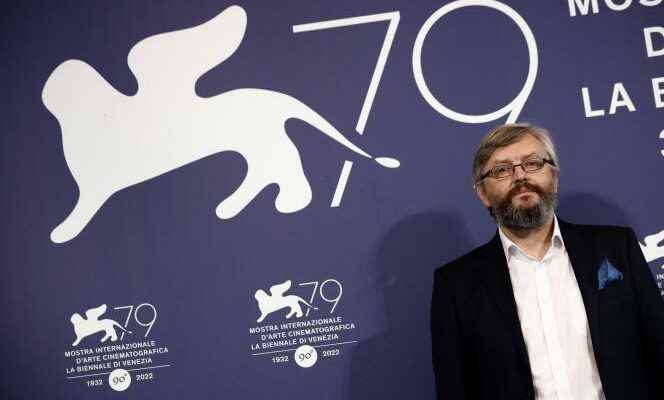At 58, Sergei Loznitsa is an example of resistance to reductionism. Born in Belarus, raised in Ukraine where he majored at the Polytechnic University, trained in cinema in Moscow, living in Berlin. He divides his work between documentary work of the very first order and fictions as admirable as My Joy (2010) or In the fog (2012). His passion for Soviet and post-Soviet history brings together the two sides of his creation. With the Ukrainian revolution and then the invasion of the country by the Russian army, Loznitsa, from his place as a filmmaker, is at the forefront of the battle for emancipation. movies like Maidan (2014) or Donbass (2018) attest to this. He was nevertheless banned from the Ukrainian Film Academy, in particular for having expressed his refusal to boycott all Russian artists. He is back today with Babi Yar. context, a montage documentary about the massacre of Ukrainian Jews during World War II. This film will not help his case among the sectarians, to all the others, it will teach the complexity of the story, the sense of nuance, the freedom of thought.
What do you think, in the event of Babi Yar, should constitute a lesson for today, more particularly with regard to the fight led by Ukraine for its emancipation?
It is first of all an event which took place in my city, kyiv, and which is particularly important with regard to the history of the genocide as it took place in Ukraine and throughout the Soviet territory. The resonance of the event today is simple: I would say that the fate of this country will depend on how politicians will position themselves in relation to it. Ukraine has been independent for thirty years, and there are still no memorials. The problem is that Ukrainian policemen took part in the annihilation of the Jews and that these policemen at the same time later fought for the independence of Ukraine. They are therefore national heroes and assassins. The whole question is whether Ukrainians are ready today to hear this truth.
The Russians concealed the memory of Babi Yar in the name of the Soviet myth. What were the Ukrainians’ reasons for doing the same?
An example will help you understand it. In Lvov [actuelle Lviv], Poland in 1939, the city was 60% Poles and 25% Jews. The Jews were killed by the Nazis. Stalin exiled the Poles in 1945 and annexed the city to Ukraine. Who do you think moved into each other’s apartments? Who had an interest in nobody coming back to claim their apartment? The same situation repeated itself in all the cities of western and central Ukraine. A people has disappeared: there were more than two million Jews in Ukraine, today there are forty thousand. And the majority of those who survived left the country as soon as the borders opened in 1988. One wonders why.
You have 30.69% of this article left to read. The following is for subscribers only.
